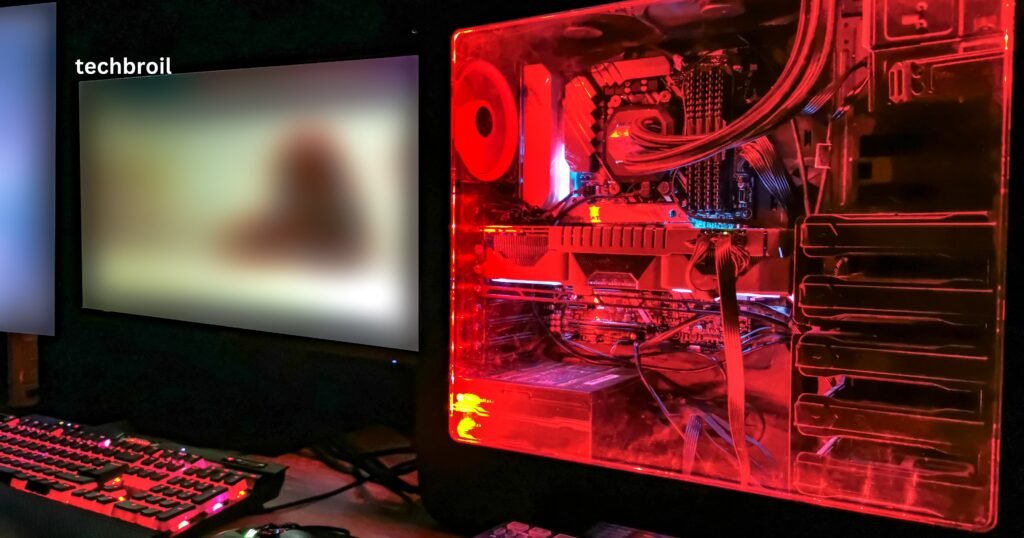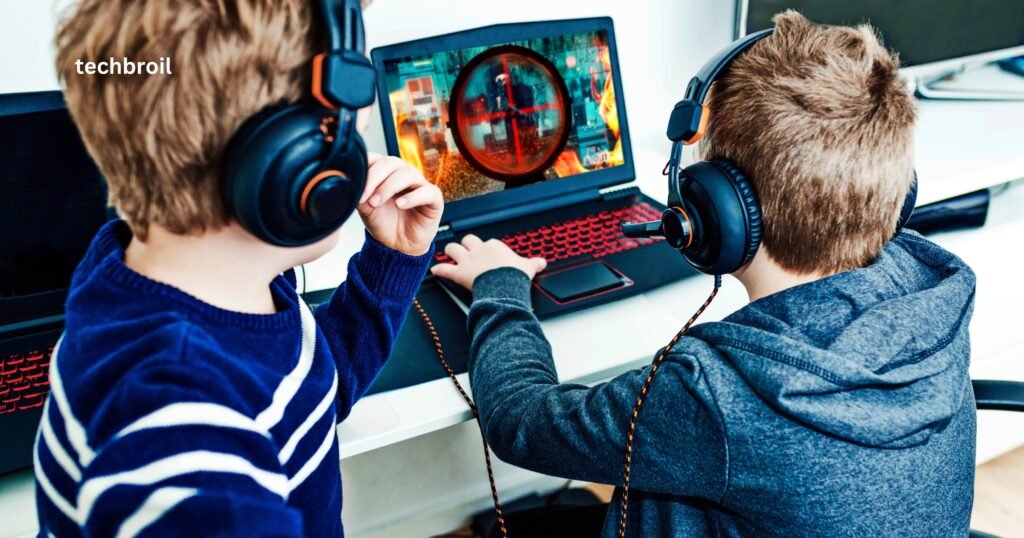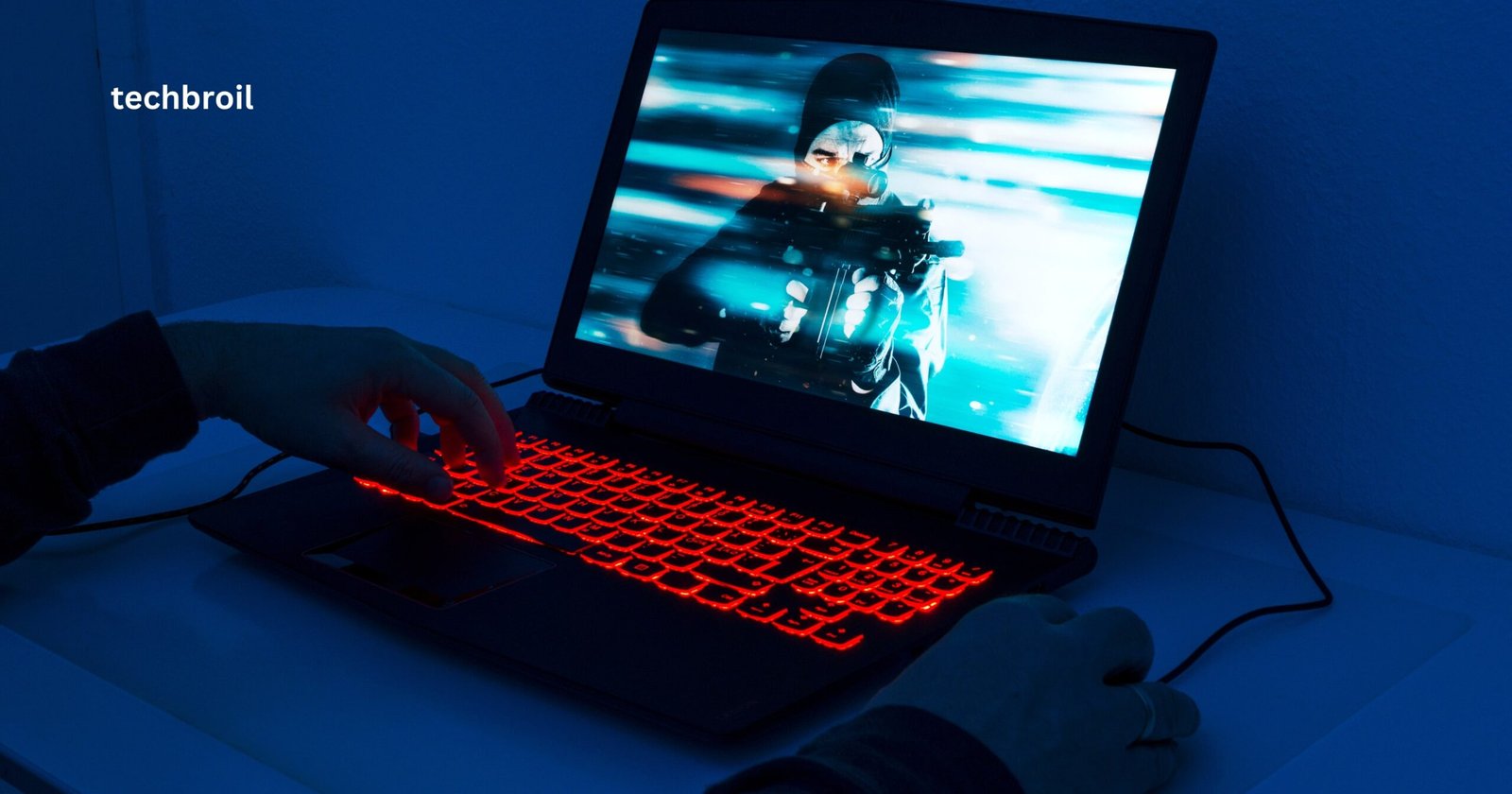Do you think about How Many GHz Is Good For Gaming?
A clock speed of 3.5 GHz to 4.0 GHz is generally considered a good clock speed for gaming, but it’s more important to have good single-thread performance.
In gaming, a critical determinant of system performance is the clock speed of the central processing unit (CPU), measured in gigahertz (GHz).
The CPU clock speed significantly impacts a gamer’s experience, affecting frame rates, load times, and the overall smoothness of gameplay.
This comprehensive analysis will explore the factors influencing the ideal CPU clock speed for gaming and how they contribute to an optimal gaming experience.

Understanding CPU Clock Speed (GHz)
1. Definition and Basics
- Clock Speed: Clock speed refers to the number of cycles a CPU can execute per second, usually measured in gigahertz (GHz). It determines how quickly a CPU can process instructions.
- GHz in Gaming: In the context of gaming, CPU clock speed is critical for handling the game’s logic, physics, and artificial intelligence (AI) calculations swiftly.
2. Impact on Gaming Performance
- Frame Rates: Higher CPU clock speeds can result in higher frame rates in games, contributing to smoother gameplay and a more immersive experience.
- Reduced Latency: Faster clock speeds reduce the time taken for the CPU to process instructions, leading to lower latency and faster response times in games.
3. Ideal GHz for Gaming
- Minimum Requirement: The minimum advised CPU clock speed for most games is around 1.6 GHz. However, this largely depends on the game’s complexity and sophistication. Older, less demanding games may still perform well with this specification.
- Recommended Speeds: For avid gamers seeking an optimal experience on modern, high-demand games, a CPU clock speed of 3.5 GHz to 4.0 GHz is usually recommended. This increases frame rates, reduces latency, and smoother, more immersive gameplay.
- Future-Proofing: For those looking to future-proof their gaming setup, opting for CPUs with higher clock speeds, such as 5 GHz, may provide a performance buffer for upcoming high-end games and advancements in virtual reality (VR) and augmented reality (AR) gaming.

Factors Influencing the Ideal GHz for Gaming
Factors about How Many GHz Is Good For Gaming:
1. Game Requirements
- Varied Game Demands: Different games have varying CPU requirements. Some games are more CPU-intensive due to complex graphics, physics engines, or AI algorithms.
- Minimum and Recommended Specifications: Check the minimum and recommended CPU clock speeds specified by game developers to ensure optimal performance.
2. Type of Games
- Casual Games: Casual games, like puzzle or strategy games, typically don’t require very high clock speeds and can be enjoyed on mid-range CPUs.
- AAA Titles and Demanding Games: High-end, CPU-intensive games like open-world, first-person shooters, or simulation games often benefit from higher CPU clock speeds for smoother performance.
3. GPU-CPU Balance
- GPU Bottleneck: An imbalanced system, where the GPU (Graphics Processing Unit) is significantly more powerful than the CPU, can render a high CPU clock speed less effective, as the GPU becomes the limiting factor.
- Matching CPU and GPU: Ideally, the CPU clock speed should be balanced with the GPU’s capabilities to avoid bottlenecks and achieve optimal performance.

Balancing Clock Speed and Other CPU Features
1. Multi-Core Processors
- Core Count and Clock Speed: Balancing a higher core count with a good clock speed is crucial. Modern games are becoming more optimized for multi-core processors.
- Utilizing Multiple Cores: Games that utilize multiple cores can benefit from a balance of clock speed and core count, ensuring efficient processing across threads.
2. Cache Size and Efficiency
- L3 Cache Importance: Larger L3 cache sizes can improve performance by reducing the need to access slower system RAM, particularly in tasks where quick data retrieval is crucial.
- Cache Efficiency: Efficient cache management minimizes latency and enhances gaming performance, working with clock speed.

Overclocking and Its Impact on GHz for Gaming
1. Definition and Process
- Overclocking Basics: Overclocking involves increasing a CPU’s clock speed beyond its default settings to achieve higher performance.
- Potential Risks: Overclocking can lead to increased heat generation and potentially reduce the lifespan of the CPU if not done carefully.
2. Impact on Gaming Performance
- Increased Clock Speed: Overclocking can increase clock speed, potentially enhancing gaming performance by providing higher frame rates.
- Heat Management: Efficient heat management is vital to ensure stable overclocking and prevent overheating, which can negatively impact performance.

Future Trends and Considerations
1. Advancements in CPU Technology
- Improved Architectures: Ongoing advancements in CPU architectures aim to enhance efficiency, allowing for better performance even at moderate clock speeds.
- Focus on Power Efficiency: Future CPUs may prioritize power efficiency without compromising performance, potentially altering the traditional importance of high clock speeds.
2. Next-Generation Gaming and GHz Requirements
- Increased Demands: As gaming technology evolves, the demands on the CPU are likely to increase. Next-gen games could necessitate higher clock speeds for optimal performance.
- Scope for Upgrades: To accommodate these demands, gamers may need to consider periodic CPU upgrades.
- Cloud Gaming: With the advent of cloud gaming, compute-intensive tasks may shift from local hardware to cloud servers, potentially reshaping the relevance of local CPU clock speeds.
3. The Role of Software Optimization
- Optimization of Game Code: How developers have optimized a game’s code significantly impacts the GHz required for optimal performance. Efficiently written code can maximize the usage of the available clock cycles, reducing the necessity for higher GHz.
- Operating System Overhead: The operating system overhead can influence gaming performance. Systems with minimal overhead allow more CPU resources to be allocated to the game, potentially reducing the CPU GHz requirement.
- Drivers and Game Updates: Updating system drivers and game files can also help utilize the CPU more efficiently. Latest updates often come with performance improvements that can lower the GHz needed for optimal gameplay.
Conclusion
Do you think about How Many GHz Is Good For Gaming? Determining the ideal CPU clock speed (GHz) for gaming involves a careful evaluation of multiple factors, including the type of games being played, the balance between the CPU and GPU, and the advancements in CPU technology. Higher clock speeds generally contribute to improved gaming performance, but a balance with other CPU features, such as core count and cache efficiency, is crucial for an optimal gaming experience. Overclocking can enhance clock speeds but should be approached cautiously, considering potential risks and heat management. As technology continues to evolve, the relevance of clock speed in gaming may shift, and a comprehensive understanding of CPU specifications will remain essential for gamers seeking the best gaming performance.
FAQs
Is 2.4 GHz fast enough for gaming?
A 2.4 GHz CPU should be sufficient for lighter, casual gaming. However, a CPU with a higher clock speed would be more suitable for demanding AAA games or high-end multiplayer games requiring heavy processing. It’s also important to consider other factors, such as the CPU’s core count, cache efficiency, and the balance with your GPU.
Is A 2.6 GHz processor good for gaming?
A 2.6 GHz processor can adequately handle mid-range games, but a faster processor would be more advantageous for graphics-intensive games or gaming at higher settings. Factors like the number and efficiency of cores, cache size, and the match between the CPU and GPU also significantly influence gaming performance.
Is a 3.0 GHz processor good for gaming?
A 3.0 GHz processor is generally a good choice for gaming. It offers a balance of power and efficiency, capable of running most modern games smoothly at medium to high settings.
However, it’s crucial to ensure that other components, like the GPU and RAM, are up to par to avoid potential bottlenecks.
How many GHz do I need for gaming?
A CPU with a clock speed of 3.5-4.0 GHz is recommended for most modern games.
This ensures a smooth and lag-free gaming experience, particularly for graphics-intensive games.
The requirement can vary based on the complexity of the game, in-game settings, and the balance with other system components, such as the GPU.









